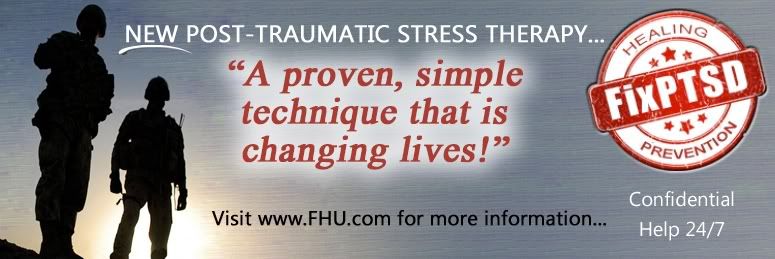For the American soldier, it's become the sneakiest of all sneak attacks to watch out for – the enemy's final chance to wreak havoc by secretly following the soldier home and attacking him and his loved ones there.
Post-traumatic stress disorder, or PTSD – frequently characterized as "bringing the enemy home with you" – has become an epidemic in the U.S. military. But because of a dramatic breakthrough from the grassroots, there is new hope.
The problem is dire. Exacerbated by back-to-back tours of duty in a war environment where enemy combatants are often indistinguishable from civilians and every passing vehicle a potential car bomb, up to 20 percent of Iraq and Afghanistan war vets are currently struggling with PTSD, according to the federal Department of Veterans Affairs.
And the Department of Defense Task Force on Mental Health, calling combat "a life-changing experience, imposing long-lasting emotional challenges for combatants," reports a staggering "20 to 50 percent of active duty service members and Reservists reported psychosocial problems, relationship problems, depression, and symptoms of stress reactions, but most report that they have not yet sought help for these problems."
Symptoms of PTSD commonly include a high level of anxiety and emotionality, anger and rage, mentally re-experiencing traumatic events through flashbacks or nightmares, avoidance of things associated with the trauma, depression, difficulty sleeping and other debilitating symptoms – including, as a recent study shows, increased risk of heart disease.
Of course, it's not just warriors who battle PTSD: Any human being experiencing the sudden death of a loved one, a devastating natural disaster or a violent crime like rape or assault; being victimized by childhood molestation, abuse or neglect; witnessing a serious accident or terrorist attack – in short, suffering any intensely traumatic or shocking experience that overwhelms one's ability to cope – can face post-traumatic stress disorder, says the National Institute of Mental Health.
But help is on the horizon. To begin with, PTSD and other stress-caused problems are getting lots of publicity. Medal of Honor recipients do public service announcements urging soldiers to seek help and not be deterred by the stigma that often accompanies the "warrior ethos" – namely, if you have any kind of mental or emotional problem, just "suck it up" and go back to work.
Read the full article HERE.


No comments:
Post a Comment